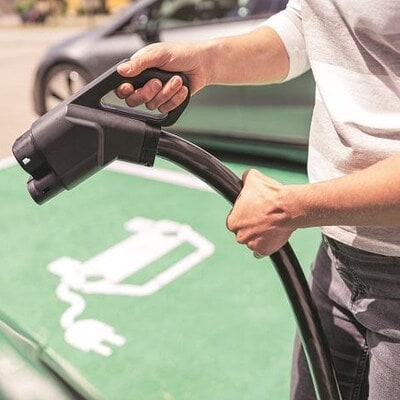ESAF SFB to focus on solar rooftop and electric vehicle financing
ESAF Small Finance Bank is focusing on solar rooftop and electric vehicle financing as a part of the bank’s strategy to drive asset growth in the clean energy segment, which was started by the lender about a year back, Paul K Thomas, Managing Director & Chief Executive Officer said in an interaction.
“It (Solar Rooftop Financing) is part of our business. We are focusing on that and also on the Electric Vehicles segment. We have a special focus on promoting electric vehicles also, within the vehicle loan segment,” Thomas told Business Standard.
As of 31 December 2023, solar rooftop financing and electric vehicle financing, which is reported under the clean energy loans of the bank, stood at around Rs 2.26 crore of the total retail loans worth Rs 3201 crore.
The financing under clean energy loans, which started in January 2023, stood around Rs 1.2 crore as of 31 March 2023.
Talking about the challenges the bank is facing, Thomas listed climate change as one of the risks since most of its customers are engaged in the agriculture segment.
Thomas said climate is a risk which affects the availability of water, impacts the income of farmers, making it a key risk factor for the lender involved in agriculture loans and micro-lending.
“It will have an impact on everyone. Especially banks like us who are focusing on agriculture, micro-entrepreneurs. Climate risk is going to be a great risk for all of us,” Thomas added.
“Since 70 per cent of our branches are in rural and semi-urban areas, getting the right talents in this area is also another challenge as people want to move out of rural areas,” Thomas added.
For ESAF SFB, CASA deposits grew by 20 per cent year-on-year in the quarter ended 31 December 2023 to Rs 3563 crore, whereas overall deposits grew by 40 per cent to Rs 18860 crore.
ESAF SFB got 92 per cent of their deposits from small retail businesses and nearly 25 per cent of their overall deposits are Non-Resident Indian (NRI) deposits.
The bank is planning to reduce their micro loans book by nearly 4 per cent every year. The Microfinance Institution (MFI) book is Rs 13096 crore, which accounts for nearly 72 per cent of the total Assets Under Management (AUM) of Rs 18149 crore.
During Q3 FY24, the asset quality of the lender worsened as climate change caused stress among customers, affecting the micro loan segments. However, the trend is showing a gradual reversal with the asset quality expected to be manageable by the end of next year.
First Published: Mar 29 2024 | 6:36 PM IST
